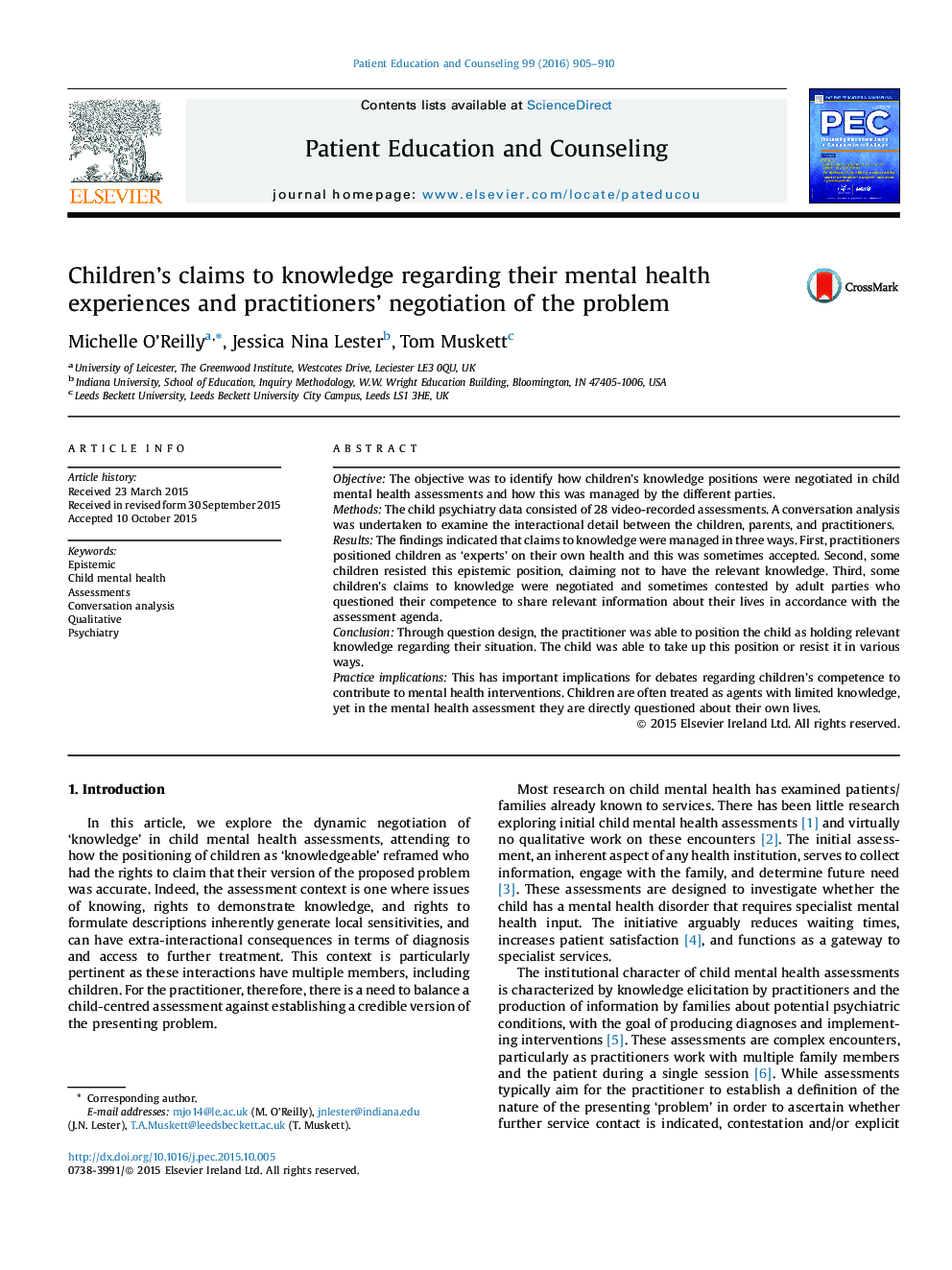| Article ID | Journal | Published Year | Pages | File Type |
|---|---|---|---|---|
| 6152620 | Patient Education and Counseling | 2016 | 6 Pages |
â¢We explored child mental health assessments using conversation analysis.â¢Children are treated, at least in part, as knowledgeable agents.â¢There were occasions whereby the children's competence was called into question.â¢The children were able to negotiate their own epistemic positon and resist epistemic agency.
ObjectiveThe objective was to identify how children's knowledge positions were negotiated in child mental health assessments and how this was managed by the different parties.MethodsThe child psychiatry data consisted of 28 video-recorded assessments. A conversation analysis was undertaken to examine the interactional detail between the children, parents, and practitioners.ResultsThe findings indicated that claims to knowledge were managed in three ways. First, practitioners positioned children as 'experts' on their own health and this was sometimes accepted. Second, some children resisted this epistemic position, claiming not to have the relevant knowledge. Third, some children's claims to knowledge were negotiated and sometimes contested by adult parties who questioned their competence to share relevant information about their lives in accordance with the assessment agenda.ConclusionThrough question design, the practitioner was able to position the child as holding relevant knowledge regarding their situation. The child was able to take up this position or resist it in various ways.Practice implicationsThis has important implications for debates regarding children's competence to contribute to mental health interventions. Children are often treated as agents with limited knowledge, yet in the mental health assessment they are directly questioned about their own lives.
